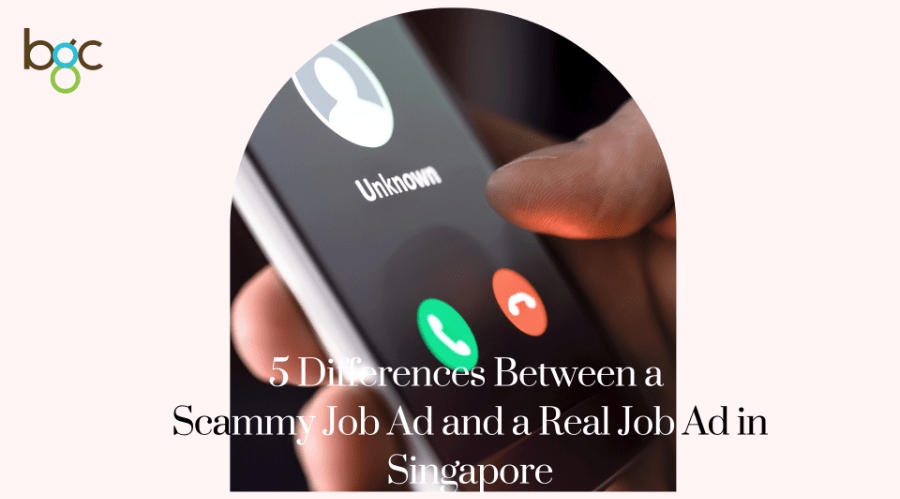You're home after spending the day at work, and you open your Facebook homepage. A job ad catches your eye and it sounds enticing. Decent money, work from home, not an MLM scheme - keywords that call out to you. The downside? It sounds a little too good to be true and you're not sure if it's a scammy job ad.
With a large number of vague, job advertisements that promise a high salary, how can you tell a real job ad from a fake one? Don't worry! Let BGC Group, Singapore's trusted recruitment agency help you out. Here's what you need to look out for during your next job search.
1. Keywords That Sound Too Good To Be True
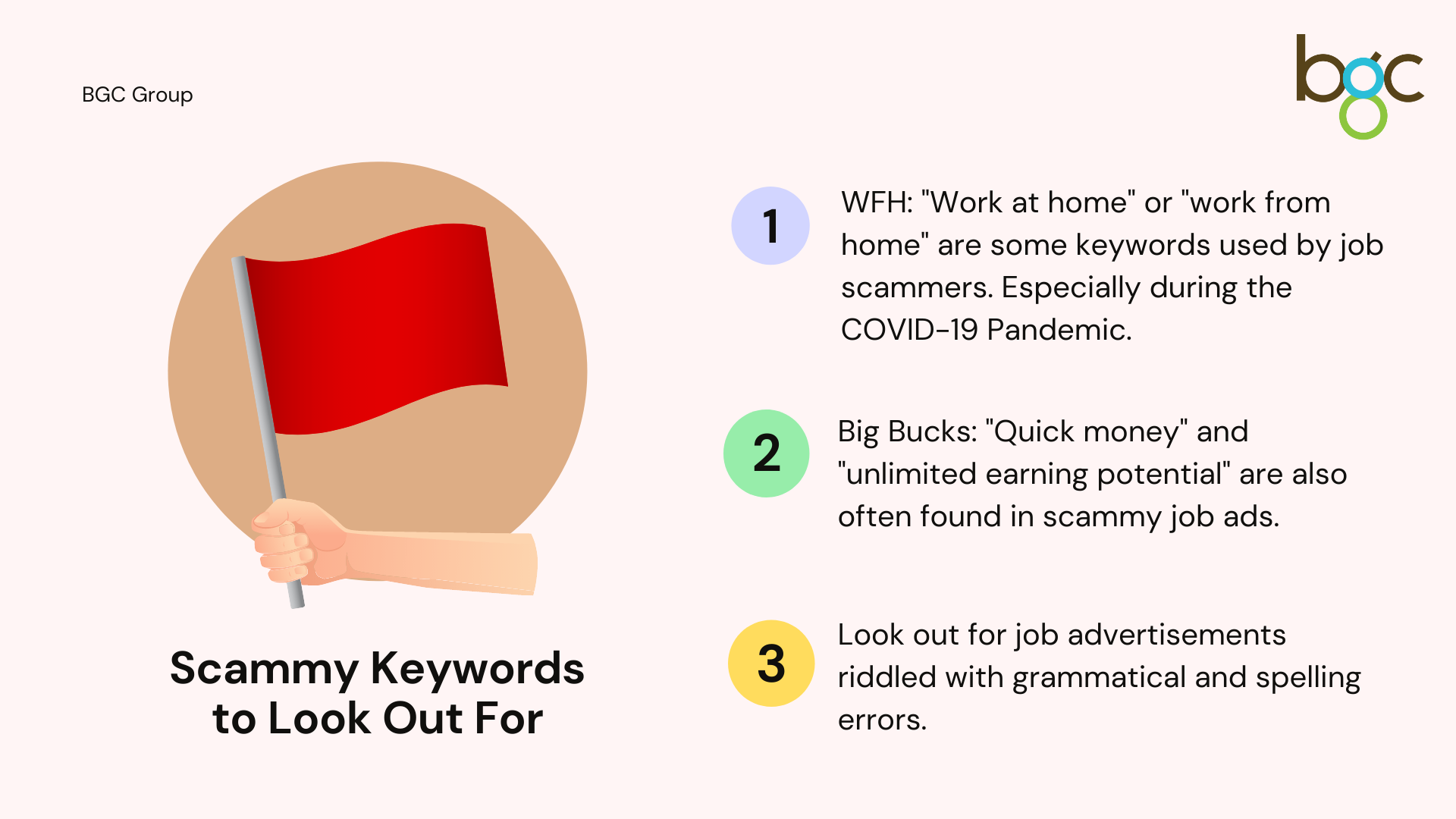
Let's be clear. If the job advertisement sounds too good to be true, there is a very high chance that it probably is! Look out for keywords that sounds a little suspicious. Often times, scammy keywords will make the job ad sound like a "get rich quick" scheme. Some keywords to look out for include, "work from home", "flexible hours", "very high pay", "no need for previous experience", and "must be ok with traveling overseas".
Keep in mind that context is also important. Jobs that require years of specialization and experience with the words "no previous experience required" should be a red flag.
2. "Work From Home" Schemes
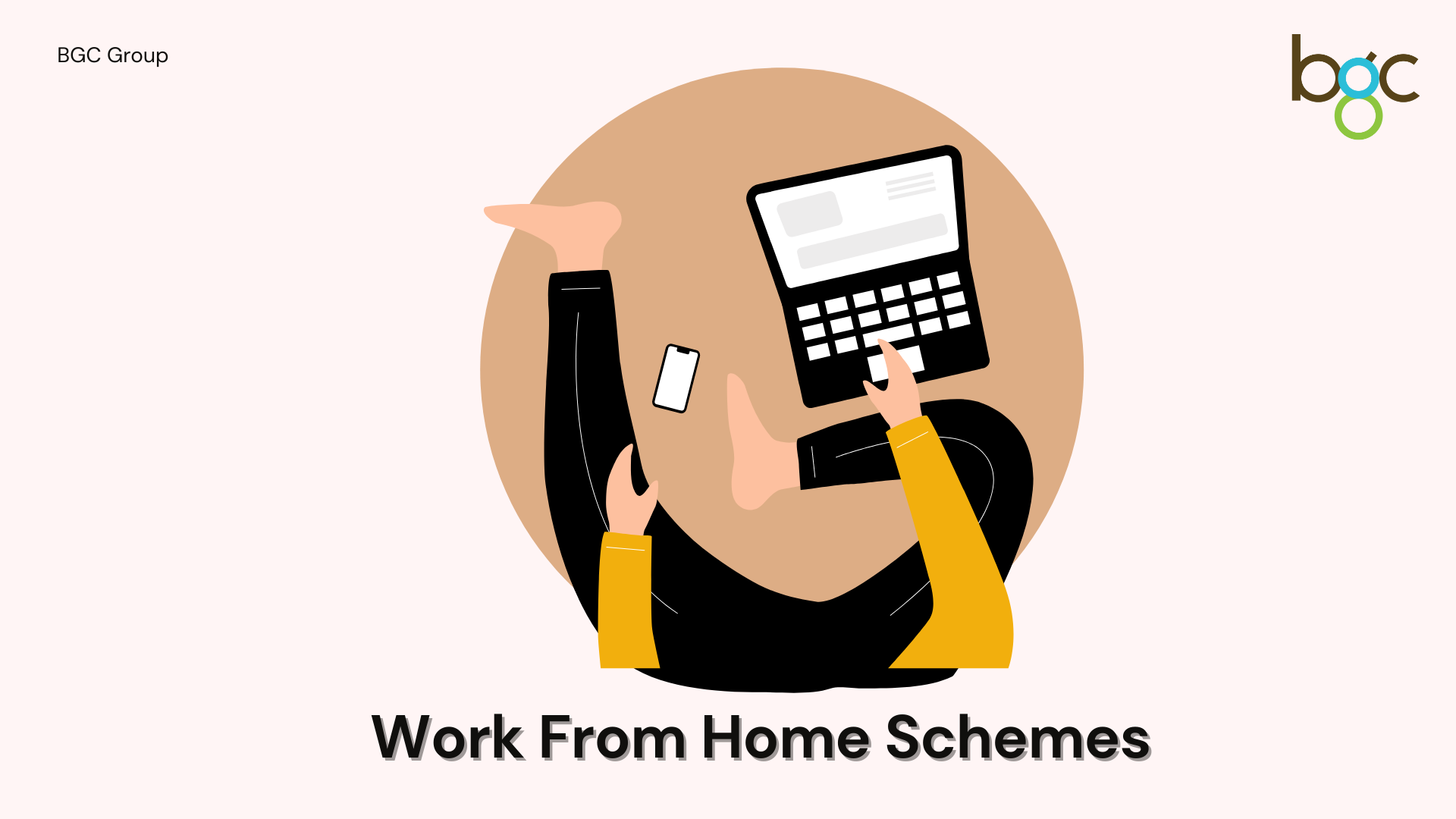
In a world where insurance agents and MLM schemes are rampant, jobs advertised as "work from home" positions are often fraudulent positions. A standard "work from home" scheme will offer people large sums of money in exchange for minimal effort.
These scams aim to get two things out of you: your personal information and money from your wallet. Victims have reached out to Scam Alert Singapore with stories of agents asking for some money to purchase "starter packs", insurance, and membership fees before disappearing with the cash. In other cases, victims have been asked to reveal personal information such as their full names, IC numbers, phone numbers, security codes, and one time passwords (OTP's).
You can stay safe from such schemes by looking out for positions that require you to pay a sum of cash before you start your job, and jobs that offer high pay for little to no effort.
3. Ads Written in Bad English
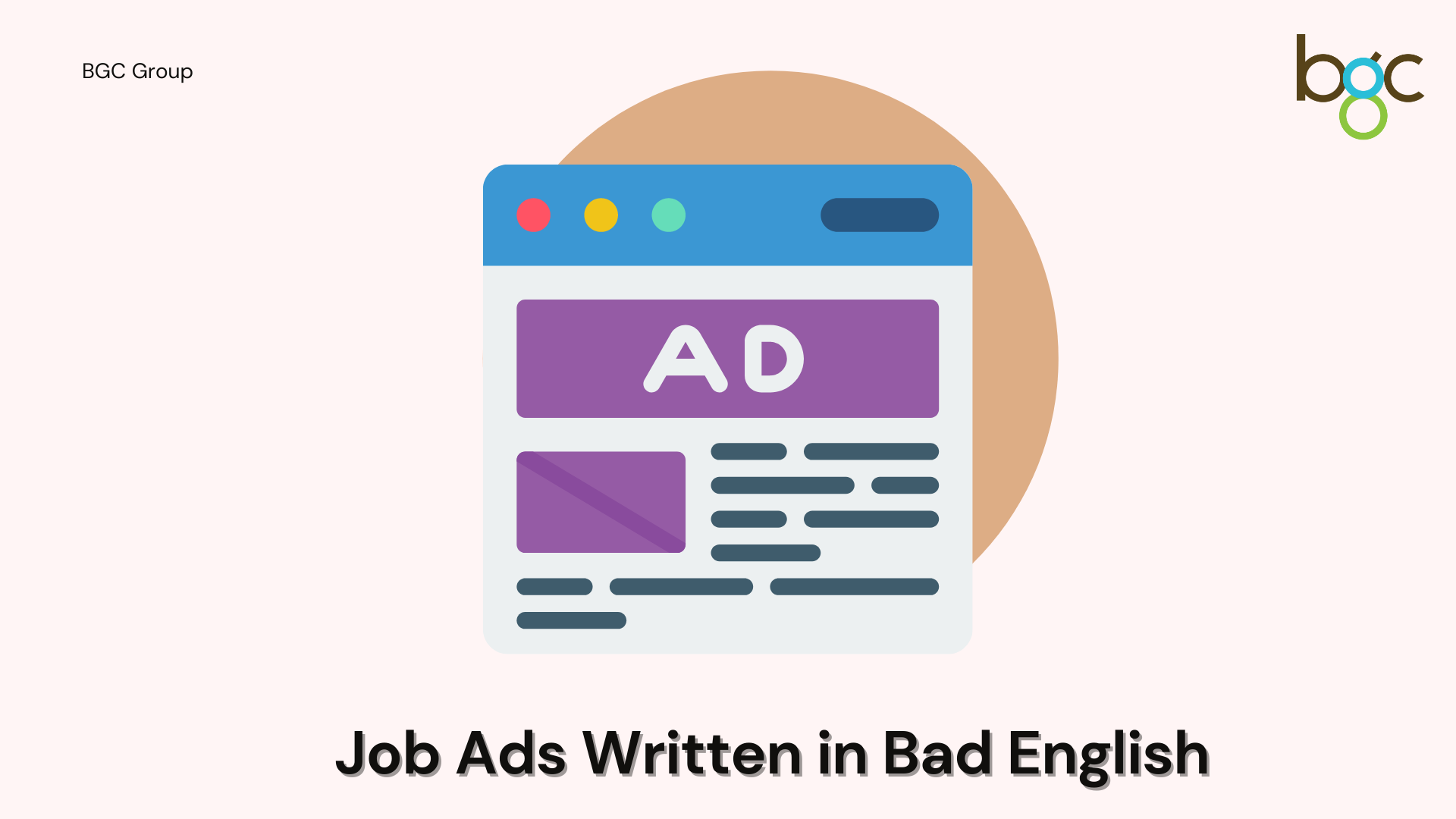
Remember when the Nigerian scam emails was a big issue? Aside from promising a faux life, the emails often featured terrible English. But don't be confused! Some recruiters choose to write in a common language in hopes of enticing local, Singaporean job seekers.
What we mean by bad English are ads written with multiple grammatical mistakes, lack of capital letters where it SHOULD be, and wrong words used at the wrong points of the ad. Does the ad sound like it was written by a scammer? Chances are it is.
You should also take into consideration the ad's tone of voice. For instance, if the company claims to be an IT recruitment agency in Singapore then their ads should use good English, in the hopes of sounding professional.
4. Dubious Images Used
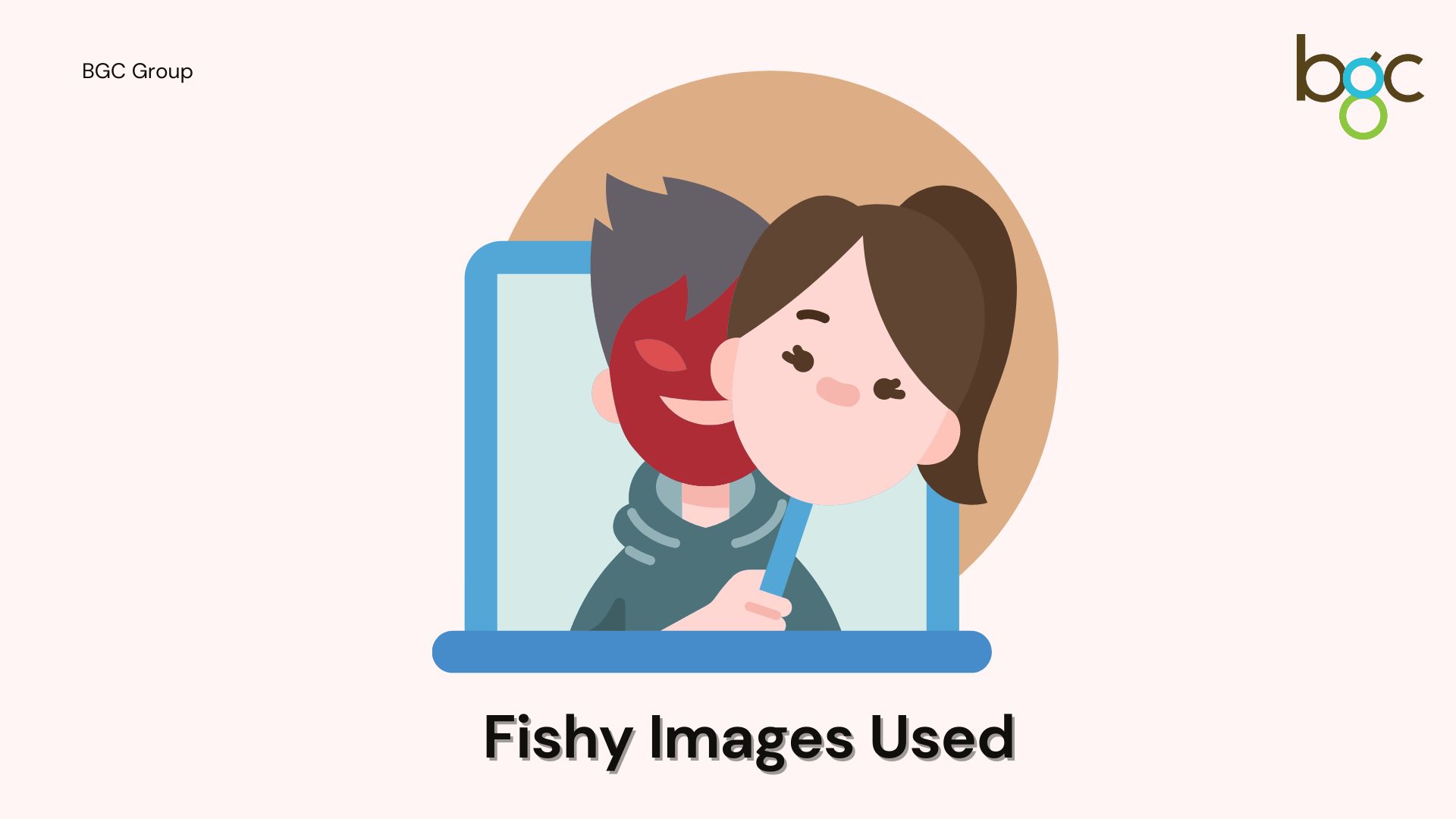
If your brain doesn't scream "SCAM" the moment you see this ad then you need to rethink what professional ads mean to you. Instead, look out for ads that exude an air of professionalism, like the one below. Trained consultants and recruiters will know to include memorable information like working hours and whether or not overtime (OT) is required.
Try to look out for job ads with more in-depth information. Promising ads will feature memorable information such as working hours, salary, the job scope, the requirements needed, and ways to contact them.
5. General Lack Of Information
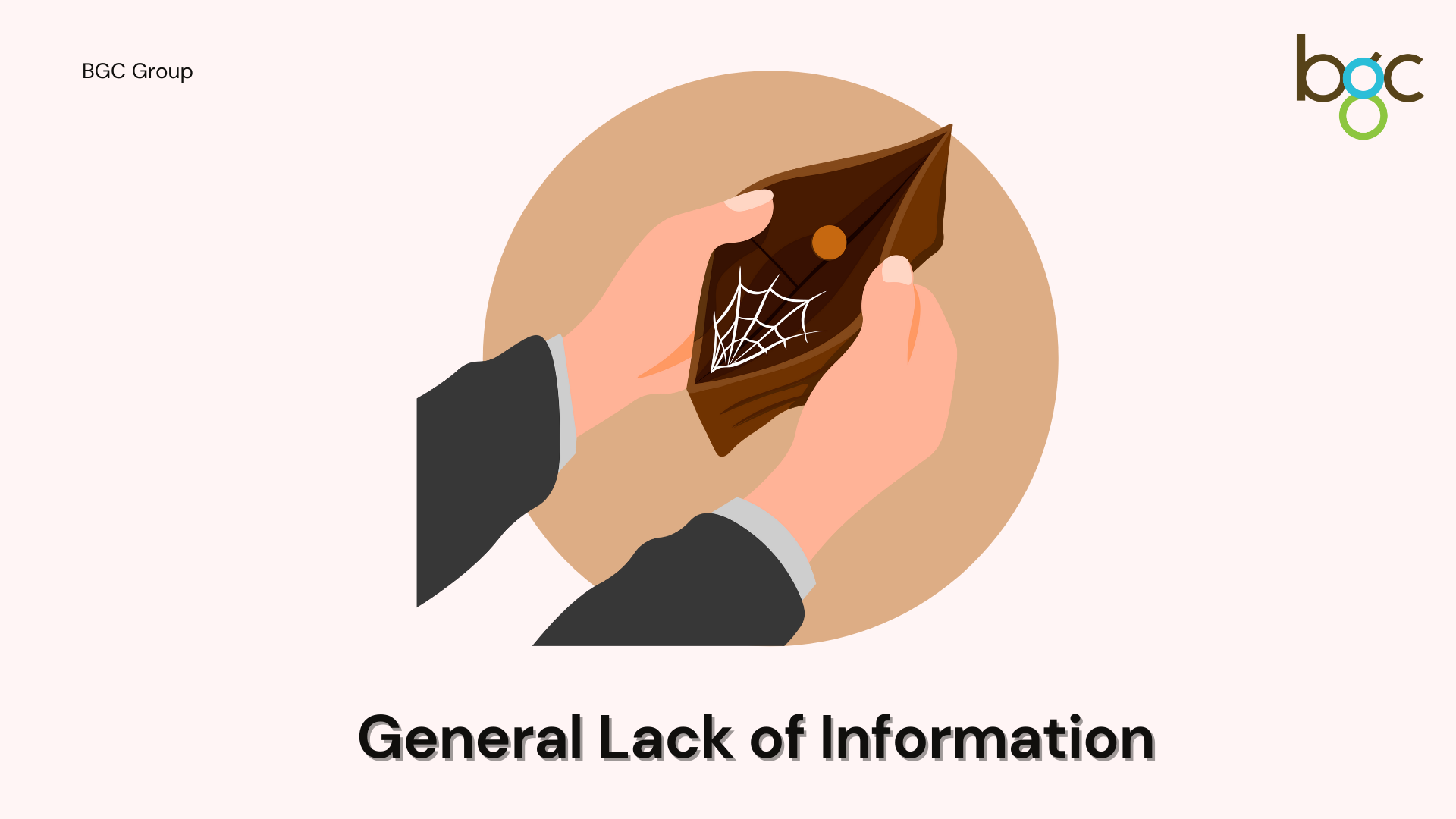
Vague job descriptions, no job responsibilities, lack of contact information are some information reputable job ads will have. Recruiters from large employment agencies may not divulge information such as the company they're hiring for, but candidates will always be provided with supplementary information. These include the agency name, recruiter's name and contact number, and at times a special serial number at the end of the job ad.
6. Asking You to Commit Immediately
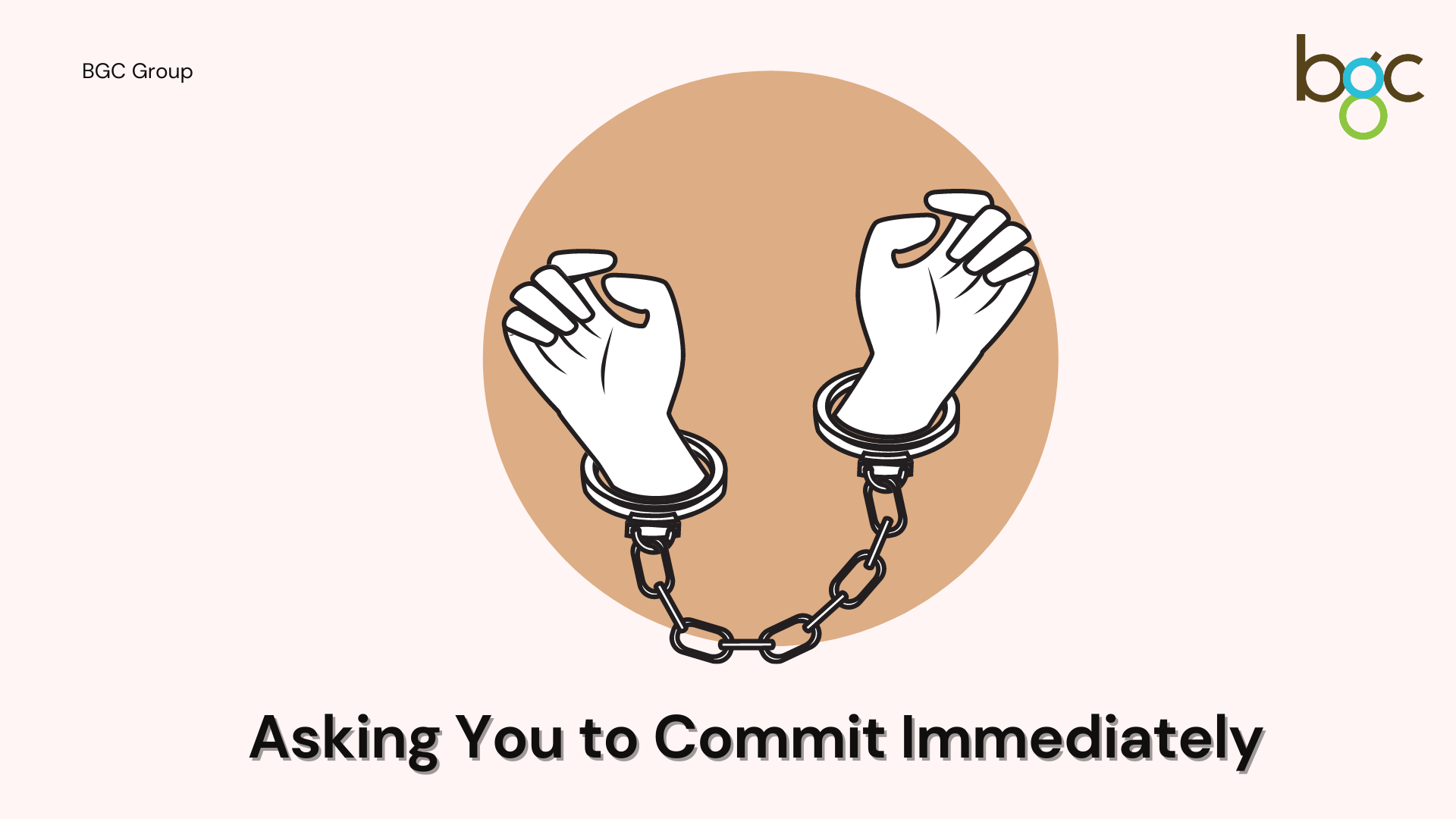
What do scammers and toxic partners have in common? They try to get you to commit to their offerings almost immediately. Oftentimes without giving you all the information you require. Watch out for recruiters who make worldly promises — such as high paying roles that require little to no qualifications.
More information on job scams here.
Ok, so what's a safe job ad?
No, you're not the master of weeding out fake job ads. Before certifying yourself as the faux job ad master, remember to look out for job ads that:
Do not ask for sensitive information like your credit card, bank information, and passwords
Are reasonably designed and well-written
Contain a job description, followed by job responsibilities, and contact information provided in the ad
Where can I find a BGC approved job ads?
More information on great job portals to hunt for jobs!
Anything else?
Lastly, it's important to remember that despite wanting a job real fast, you should take precaution to make sure you're not falling for a scam.
Ask yourself, does a hiring manager really need your bank details before allowing you to sign a contract? Follow your gut or if unsure, do your own research. Call the company and ask to speak to a hiring manager or check them out online. For instance, if a company claims to be an IT recruitment agency in Singapore, make sure that their online credentials check out.
Think you've fallen for a job scam? Alert your friendly neighbourhood police force as soon as you can! Let's be smart and stay safe!
*All images are for illustration purposes only.
Liked this article? Check out these interesting reads:
Want To Know If A Job Posting is Fake? Look Out For This 1 Thing.
7 Tips for Twenty Somethings in Singapore Who Want to Get Hired Fast
